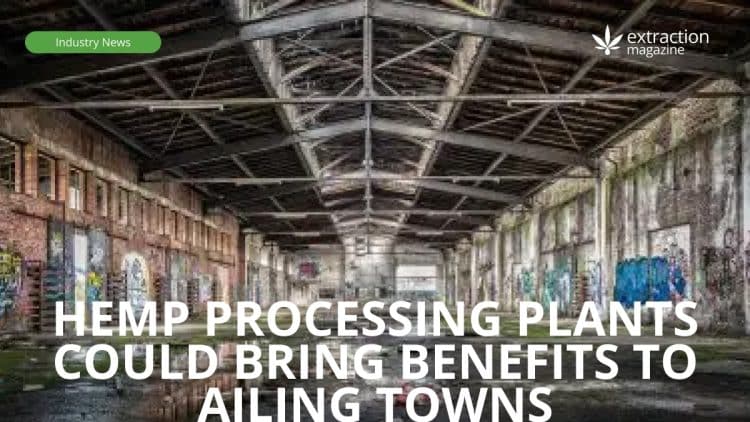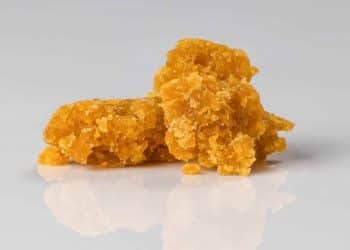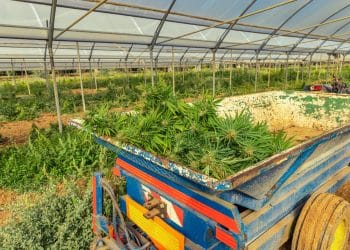According to a recent study, hemp intercropping can provide significantly more economic benefit than pine plantation. [1] This is important because it demonstrates that growing hemp has economic and environmental advantages. Unsurprisingly, with this being the case in recent years, the hemp industry has been experiencing a remarkable resurgence in ailing towns eager for economic growth.
As the legal barriers surrounding hemp production continue to relax in many regions, the establishment of processing facilities holds promise and hope. This article explores the potential benefits of hemp processing plants and their impact on communities facing economic challenges with a case study.
Hemp And Its Economic Benefits
Hemp has a long history of human use, dating back thousands of years. [2] Traditionally valued for its fibers, seeds, and oils, hemp has been utilized in various industries, including textiles, construction, and nutrition. Yet, with recent changes in legislation and growing awareness of its potential, hemp has found new avenues for commercialization in America and globally. [3]
This has led many to ask how commercialization economically benefits failing towns, and the answer is simple. The economic potential of hemp lies in its numerous applications. Since numerous industries are using hemp fibers because of their strength and sustainability, it makes hemp a viable alternative to traditional materials like cotton and synthetic fibers.
In addition, hemp seeds are rich in protein, healthy fats, and essential nutrients. It makes them popular in the health food market for dietary goals. Moreover, hemp-derived cannabidiol (CBD) products have gained immense popularity in the health and wellness sector, further diversifying the industry.
Hemp Processing Plants Benefiting Small Towns – Case Study
The establishment of hemp processing plants in ailing towns can create a significant positive impact on the local economy. This is because these facilities require a skilled workforce for operations, maintenance, and quality control. It always leads to job creation and a reduction in unemployment rates through the construction of hemp plants.
In addition, connected businesses and services supporting the hemp industry, such as transportation, packaging, and marketing, can also emerge, further boosting economic activity in the area. Yet, what does this look like in action?
A recent economic impact analysis by the University of Minnesota sheds light on the potential short- and long-term economic benefits of emerging hemp processing plants in small communities. The report analyzed a hemp processing facility in Waseca, Minnesota.
Owners of the plant aimed to invest $13 million in expanding their hemp-derived CBD extraction and formulation capabilities. It would generate more than 100 jobs and approximately $7 million in payroll.
In particular, CBD production is expected to provide the brunt of the new jobs as well as lead to an increase from 645 to 1,500 acres processed.
City officials in Waseca have been interested in the potential short- and long-term benefits of building these facilities. The investment would yield 110 jobs and $5.2 million in labor income in construction alone. According to the report, the expansion will benefit not only construction workers but also the wider community as a whole. Investors project annual revenues will increase by $12.6 million, creating an additional $14.5 million in economic activity for Waseca.
The facility is reportedly filling a huge hole in Waseca’s local economy after a major manufacturing facility closed, taking almost 30% of the community’s jobs along with it. The CBD hemp extraction and formulation facility would be located in the now-defunct factory.
In all, the report points to a plethora of benefits for Waseca’s workers and businesses. The facility will hire more laborers, generate construction revenues, and provide additional tax revenues to an ailing small town.
Could Waseca’s hemp CBD plan be a hint of what’s coming down the pike for other struggling small towns? Only time will tell, but the signs point toward the affirmative.
Are There Any Drawbacks to Hemp Processing Plants Being Built in Ailing Towns?
While it’s true that hemp processing plants hold immense promise for ailing towns, it’s crucial to note the challenges associated with their establishment. For example, careful consideration must be given to zoning, waste management, and community engagement to ensure the successful integration of these facilities without harming people or the environment.
Additionally, although the hemp industry is expanding, it remains subject to evolving regulations and market dynamics in the US, leading to many marketing and selling challenges. [4] This means that ailing American towns must be prepared to navigate potential uncertainties. Moreover, adapt to legislation and market demand changes, which can be challenging in and of itself.
Wrap-up on hemp processing plants benefiting ailing towns
Hemp processing plants present a golden opportunity for ailing towns. Their economies are reviving, which creates employment opportunities, and they embrace sustainable practices.
Ultimately, by embracing the hemp industry and encouraging responsible development, ailing towns can take a significant step toward revitalization and a brighter, more promising future. Yet, this future is only possible if they take into consideration the challenges associated with building hemp processing plants and have a game plan to navigate and overcome them.
References:
-
- Barnes, T., Parajuli, R., Leggett, Z., & Suchoff, D. (2023, April 14). Assessing the financial viability of growing industrial hemp with loblolly pine plantations in the southeastern United States. Frontiers.
- Encyclopædia Britannica, inc. (2023, June 30). Hemp. Encyclopædia Britannica.
- John Hudak, C. S., Bush, R. C., Gerard Caprio, J. L. F., Hudak, J., & Sabina Morris, J. H. (2018, December 13). The farm bill, hemp legalization and the status of CBD: An Explainer. Brookings.
- The opportunities and challenges with Hemp. The Opportunities and Challenges with Hemp | Integrated Crop Management.
Updated July 2023












